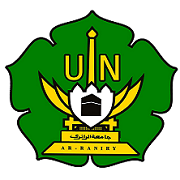Publication Ethics
Publication Ethics
AHKAMUL USRAH: Journal of Family Law and Islamic Judiciary is committed to upholding high standards of publication ethics to ensure the quality, integrity, and transparency of published research. The following ethical guidelines are based on best practices recommended by the Committee on Publication Ethics (COPE) and apply to all parties involved in the publication process: editors, authors, reviewers, and publishers.
Duties of Editors
- Fair and Impartial Review: Editors will evaluate all submitted manuscripts based solely on their academic merit, relevance to the journal's focus and scope, originality, and clarity, without discrimination based on race, gender, religious belief, or institutional affiliation.
- Confidentiality: Editors must maintain the confidentiality of all submissions and shall not disclose any information about a manuscript to anyone other than the corresponding author, reviewers, and publishing staff.
- Conflict of Interest: Editors shall not use unpublished information from submitted manuscripts for their own research without the author’s explicit consent. Editors will recuse themselves from handling manuscripts in which they have conflicts of interest.
- Decision-Making: Editors have the responsibility to make publication decisions based on the reviewer's feedback and the journal’s policies. Decisions will be made fairly, transparently, and in alignment with journal policies.
Duties of Authors
- Originality and Plagiarism: Authors must ensure that their work is original and properly cite any sources used. Plagiarism in all forms, including self-plagiarism, is considered unethical and unacceptable.
- Acknowledgment of Sources: Proper acknowledgment of others' work is required, and any form of data or work from other sources must be cited.
- Data Accuracy: Authors are expected to present their findings accurately. Manipulation or falsification of data is unethical and prohibited.
- Disclosure and Conflicts of Interest: Authors should disclose any financial or other conflicts of interest that might influence the results or interpretation of their manuscript.
- Authorship: Only individuals who have made a significant contribution to the research and manuscript preparation should be listed as authors. All co-authors must approve the final version of the manuscript and agree to its submission.
- Multiple Submissions: Submitting the same manuscript to more than one journal simultaneously is unethical. Authors should ensure that their manuscript is not under review elsewhere.
Duties of Reviewers
- Confidentiality: Reviewers must treat manuscripts as confidential documents and must not share or discuss them with others, except as authorized by the editor.
- Objectivity: Reviews should be conducted objectively, with constructive feedback to help authors improve their work. Personal criticism of authors is inappropriate.
- Acknowledgment of Sources: Reviewers should identify relevant published work that has not been cited by the authors. Any similarity between the manuscript under review and other published work should be reported to the editor.
- Conflict of Interest: Reviewers should not review manuscripts in which they have conflicts of interest resulting from competitive, collaborative, or other relationships with any of the authors, companies, or institutions connected to the papers.
Publisher’s Responsibilities
- Ethical Oversight: The publisher is committed to ensuring that all aspects of the publication process follow ethical guidelines and will act to prevent and address publication misconduct.
- Corrections and Retractions: If errors or inaccuracies are found in published work, the publisher will work with the editors to correct or retract the paper promptly.
AHKAMUL USRAH is dedicated to ensuring ethical integrity in publishing. Any instances of ethical misconduct will be taken seriously and investigated thoroughly.












